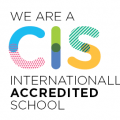What is the IB PYP?
In Primary School, the curriculum is designed according to the guidelines of the IB Primary Years Programme (PYP). The curriculum at MSF is not solely a knowledge-based curriculum but one that “balances the acquisition of significant and relevant knowledge and skills, the development of conceptual understanding, the formation of personal, positive attitudes and the capacity to take responsible actions. The PYP addresses students’ academic needs and their social and emotional well-being, encourages students to develop independence and to take responsibility for their own learning, supports students’ effort to gain an understanding of the world and to function effectively within it, and helps students to establish personal values as a foundation on which international-mindedness will flourish”. Further information about the PYP can be read here (IB Website)
What subjects do we teach?
We take what is known as a transdisciplinary approach to education at MSF Primary. This means that, where possible, subjects are not taught in isolation but through units of study that cross curriculum areas. We still teach essential skills in language, social studies, mathematics, science and technology, arts, and personal, social, and physical education. Rather than have a specific science lesson, however, students develop their understanding of scientific concepts through our units of inquiry. Some subjects are taught more distinctly than others: mathematics skills, for example, are not always genuinely applicable to the content of the units. Some subjects are taught by specialist teachers: German, PE, Performing Arts (Music and Drama), Visual Arts, and ICT.
Our Programme of Inquiry
The MSF transdisciplinary Programme of Inquiry offers our students a broad, balanced, conceptual and connected learning experience. Six transdisciplinary themes form the structure of the Programme of Inquiry for each grade. The themes capture human commonalities that are significant and relevant across cultures, geographic regions and student learning stages. Our Programme of Inquiry ensures that students gain a balance of subject-specific knowledge, conceptual understandings and skills, alongside opportunities to develop the attributes of the IB Learner Profile and to take action. The units of inquiry are collaboratively planned, developed and continually modified based on reflection with students.
Learning German
The development of German language skills is a large and important part of our curriculum. It is critical that our students are supported in learning German, the language of the host country, in order to maximise their experience of life outside the school’s English-speaking environment. German is taught by specialist teachers; lessons take place six times per week. Students are grouped according to their exposure to German, in either native or non-native classes.
How we use technology
We have a dual approach to the use of technology at MSF primary. During weekly lessons in our purpose-built Information Technology Centre, our specialist teacher helps students discover the incredible scope of technology in our world. Topics include; robotics, coding and 3D design.
In their classrooms, students are encouraged to apply technology in a way that enhances their learning experience. We have sets of Chromebooks and iPads that the students can use when the task requires them. These tasks include; research, presentations and media recording. As of Grade 5, students bring their own device to school.
The school library
Our students have access to a wide range of both fiction and non-fiction texts in our Primary School library, located in the Primary School building. Students visit the library during fixed times each week to check out books and work with our school librarian to develop both their research and reference skills. In addition to the physical library, we also have a large collection of digital resources that the student can access both at school and at home.
Athletic Programme
Vision: Getting students involved in athletics is ever more important. Scientific studies have shown that:
- student-athletes learn life skills such as teamwork, self-discipline, self-confidence, responsibility, perseverance, problem solving, and time management,
- school-based sports establish a sense of pride and strengthens the sense of community in athletes,
- children who participate in sports are more likely to maintain a healthy lifestyle (this includes healthy decision making).
Hence, MSF is striving to create as many opportunities as possible to get students involved in athletics. Over the next few years, MSF will continue to grow and so will the athletic programme.
FALL | WINTER | SPRING |
Cheerleading Grades: 3-5, 6-8, 9-12 | Basketball Grades: 3-5, 6-8, 9-12 | Rugby Grades: 3-5, 6-8 |
Cross Country Grades: 6-8, 9-12 | Cheerleading Grades: 3-5, 6-8, 9-12 | Volleyball Grades: 6-8 |
Soccer Grades: 3-5, 6-8, 9-12 | Indoor Cricket Grade: 3-5, 6-8 | Future Sports to Be Added
|
Volleyball Grades: 9-12 | ..as well as more grade levels to existing sports! |












